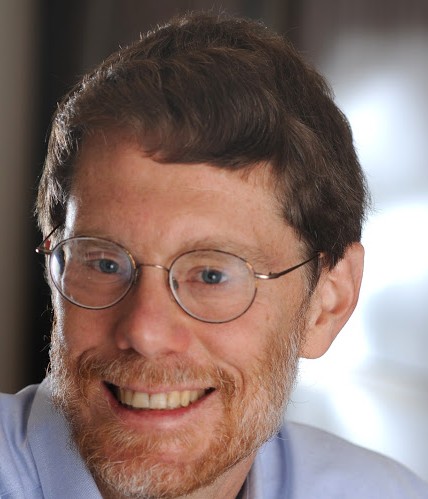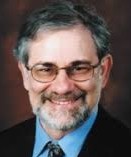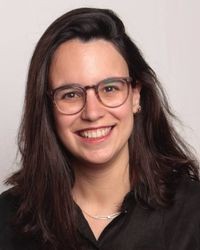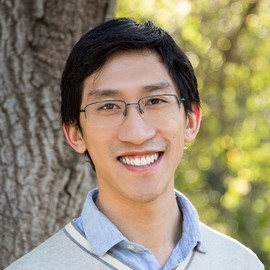Columbia’s theoretical scientists are developing the fundamental frameworks that will let us take full advantage of emerging quantum technologies, including quantum computers, quantum sensors, and new light sources.
Key Faculty
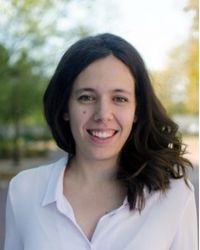
Theoretical Quantum Optics and Many-body Physics
Latest News & Research
Leaders in the field of ultracold molecule research from Columbia and Harvard Universities are teaming up to propel understanding of the quantum mechanics of chemical reactions.
Cory Dean, Professor of Condensed Matter Physics, and Timothy Berkelbach, Assistant Professor of Chemistry, have been named recipients of the Presidential Early Career Award for Scientists and Engineers (PECASE).
Working together with the Flatiron Institute in New York City and the Max Planck Society in Germany, the University will harness quantum materials for wider applications and technologies.
Columbia Chemist David Reichman talks to Quanta Magazine about the mysteries of glass
Physicists Rees McNally and Tanya Zelevinsky from Columbia University, New York, USA, have now published a paper in EPJ D proposing two new methods of looking for such perturbations and, thus, dark matter.
In a glass, the freedom of atoms to move by quantum tunneling depends on how fast the glass was initially formed.
Chien-Shiung Wu’s pioneering work altered the way scientists view the structure of the universe.
Spin transition discovered in the Earth’s mantle; finding will improve understanding the Earth’s interior, and enable better understanding of tectonic events including volcanic eruptions and earthquakes.
One of 20 early-career researchers selected for the fellowship, Asenjo-Garcia is exploring how light and matter interact at the quantum level.
Columbia theoretical physicists Boris Altshuler & Igor Aleiner have been awarded the 2022 Lars Onsager Prize from the American Physical Society for their foundational work on many-body localization. They share this year's prize with Princeton's David Huse.
The prize, presented annually since 1995 in memory of Lars Onsager and his passion for analytical results, recognizes outstanding research in theoretical statistical physics. The prize consists of $10,000 as well as a certificate citing the contribution made by the recipient.
Meet Henry Yuen, a computer scientist exploring the boundaries between classical and quantum computers. Yuen joined Columbia Engineering as an assistant professor in January 2021.
During the pandemic, a group of Columbia graduate students launched the Physics and Coding Club at Democracy Prep Harlem High School. A year later, they’ve left the virtual world of Zoom to gather in real rooms for the first time.
Raquel Queiroz, a new assistant professor at Columbia, is setting her own rules as she explores the science of solid materials.
The theoretical computer scientist will use the award to push the boundaries of quantum information science.
The theoretical computer scientist joins four other Columbians being recognized for outstanding contributions to their field with a $75,000 Sloan Research Fellowship.
Boris Altshuler and Igor Aleiner share the American Physical Society’s Lars Onsager Prize with Princeton’s David Huse for their foundational work on many-body localization.
Before he left for the Quantum Information Processing meeting, we asked Mousavi about combining quantum mechanics with computer science and how endurance sports help keep his mind fit.
Lights! Camera! Quantum! The theoretical quantum physicist by day and actor by night explains how she blends science and art.
A new paper observing the topologically non-trivial drumhead state emerging from nodal-line semimetals offers new insights into how these newly discovered states behave in real materials.
Calculations from Ana Asenjo-Garcia and Stuart Masson reveal that any atom array is capable of bursting—a sign that atoms are syncing up.
One of four mid-career researchers selected, Zelevinsky will use the $2 million award to advance the use of molecules to study fundamental science.
The professor of chemistry, who studies quantum dynamics, phenomenology, and condensed-phase quantum chemistry, is one of 83 scientists from across the nation to receive funding for research as part of the DOE Office of Science’s Early Career Research Program.
The professor of mathematics works at the interface of probability and mathematical physics with a particular interest in exactly solvable probabilistic models and stochastic partial differential equations. Much of his work has focused around the Kardar-Parisi-Zhang equation and its universality class.
Three computer scientists have posted a proof of the NLTS conjecture, showing that systems of entangled particles can remain difficult to analyze even away from extremes. Columbia Computer Scientist Henry Yuen comments.
Columbia theoretical physicist Andrew Millis and collaborators at the University of Michigan explore electron pairing in high-temperature superconductors.
In collaboration with the Flatiron Institute, Matija Medvidović and Andrew Millis help train a machine learning tool to capture the physics of electrons moving on a lattice using far fewer equations than would typically be required, all without sacrificing accuracy.
John F. Clauser, who received his PhD from Columbia University in 1969, was one of three scientists awarded the 2022 Nobel Prize in Physics on Tuesday.
The Ernest Kempton Adams lecture series, which first brought European leaders in physics and mathematics to the university more than 100 years ago, continues Monday, October 17, with a talk on one of the oldest branches of physics from Sir Michael Berry.
Using artificial intelligence, an international team of physicists has shown that the thousands of equations needed to model a complex system of interacting electrons can be reduced to just four.
Current Columbia physicist Sebastian Will and computer scientist Henry Yuen give a brief overview of his Nobel Prize-winning work on quantum entanglement.
BWOG Staff Writer Emily Yi attended a colloquium hosted by the Physics Department, in which panelists from a range of quantum backgrounds discussed the present and future of quantum research.
In 1949 physicist Chien-Shiung Wu devised an experiment that documented evidence of entanglement. Her findings have been hidden in plain sight for more than 70 years.
Theoretical physicists Raquel Queiroz comments.
A $900,000 award from the Julian Schwinger Foundation will support graduate students in the Physics Department studying theoretical and quantum physics.
A team at Columbia University and University of Warsaw recently created a highly accurate molecular clock that could be used to study new physical phenomena.
Congratulations to graduating senior Jaylyn Umana and incoming PhD student Sophia Wolczko!
The PhD candidate in the Department of Chemistry is one of 39 fellows in this year's class.
Dipti Jasrasaria, a Columbia University postdoctoral research scientist and a 2018-2022 Department of Energy Computational Science Graduate Fellowship (DOE CSGF) recipient, has been selected as the 2023 Frederick A. Howes Scholar in Computational Science.
Postdoc Ricardo Gutiérrez Jáuregui talks about studying light at Columbia and returning home to Mexico City.
A Columbia postdoc explains what mirrors can reveal about the quantum nature of materials, and how illustrations inform his work.
Leonard Kasday's PhD work on quantum entanglement, a subject that won the 2022 Nobel Prize in Physics, is now digitally available.
Columbia Physics PhD student Matija Medvidović shares why he uses AI to tackle quantum problems.
Targeted small-scale experiments, including in the lab of Tanya Zelevinsky, look to find smoking guns—or at least to rule out possibilities.
The $600,000 award will support her work on the topology of quantum materials.
Physics PhD student Ilya Komissarov talks about his theoretical work on electricity in topological materials.
MIT physicist and Nobel Laureate Frank Wilczek will give the inaugural talk on April 15.
The results, continuing the legacy of late Columbia professor Aron Pinczuk, are a step toward a better understanding of gravity.
Gravitons, the particles thought to carry gravity, have never been seen in space – but something very similar has been detected in a semiconductor.
Timothy Berkelbach's theoretical chemistry group is interested in the electronic and optical properties of molecular, nanoscale, and condensed-phase materials. They work on a variety of quantum-mechanical problems motivated by excited-state phenomena. This research occurs at the interface of physical chemistry, condensed-matter physics, and materials science. In particular, they are interested in quantum dynamics, the phenomenology of emerging materials, and first-principles condensed-phase quantum chemistry.
He is an Associate Professor of Chemistry in the Department of Chemistry, a principal investigator with Columbia's National Science Foundation MRSEC on Precision-Assembled Quantum Materials, and a visiting scholar at the Flatiron Institute's Center for Computational Quantum Physics.
Tanya Zelevinsky's research interests involve precise spectroscopy of cold molecules for fundamental physics measurements and for investigations of ultracold chemistry and quantum optics. Her group is developing molecular lattice clocks, ultracold molecule photodissociation, and cooling and quantum state manipulation techniques for molecules with the goal of testing the Standard Model of particle physics and searching for new physics with tabletop experiments.
She is currently a Professor of Physics in the Department of Physics.
Richard Friesner's research group is focused on the following major areas:
- Development and application of novel methods for ab initio electronic structure calculations, including mixed quantum mechanics/molecular mechanics (QM/MM) methods;
- Development of a new generation of molecular mechanics force fields, including explicit incorporation of polarizability;
- Investigation and improvement of continuum treatments of aqueous solvation;
- Computational models and algorithms for protein structure prediction;
- Modeling of protein-active site chemistry using quantum chemical and QM/MM methods;
- Electron transfer theory; and
- Quantum chemical modeling of the interactions of small molecules with surfaces and nanostructures.
He is the William P. Schweitzer Professor of Chemistry at Columbia.
Raquel Queiroz and her research group investigate quantum phenomena of condensed matter systems and are fascinated with symmetry and topology. They explore how topology crucially influences fundamental characteristics of solid-state materials.
She is an Assistant Professor of Physics in the Department of Physics, a principal investigator with Columbia's Department of Energy EFRC on Programmable Quantum Materials, and a visiting scholar at the Flatiron Institute's Center for Computational Quantum Physics.
The Reichman group's research deals broadly with the chemistry, physics, and biology of disordered materials. The systems studied range from traditional glass-forming systems, soft materials (gels, colloidal suspensions, emulsions), and biological systems. Covering an extremely range of broad length scales, time scales, and functionality, our work is connected by the common themes of disorder, structural and dynamical heterogeneity, and the potential for dynamical arrest in metastable configurations.
He is the Centennial Professor of Chemistry in the Department of Chemistry and a principal investigator with Columbia's National Science Foundation MRSEC on Precision-Assembled Quantum Materials.
Chris Marianetti and his group's research focuses on computing materials behavior from the first-principles of quantum mechanics, including mechanical, electronic, and magnetic phenomena. Particular emphasis is placed on strongly correlated electron materials where density functional theory (DFT) computations tend to break down qualitatively. One of the Marianetti group's major research thrusts is developing a more advanced formalism which is based upon an integration of the dynamical mean-field theory (DMFT) and DFT. Other formal developments include first-principles-based approaches for studying extreme length and timescales which would traditionally be computationally formidable. Applications span the periodic table, from monolayers to transition metal oxides to actinides, with particular emphasis on materials related to energy storage and conversion.
Andrew Millis’ research interests focus on the theoretical physics of electrons in materials, with a particular focus on collective properties such as superconductivity and magnetism. His recent work has emphasized the development and use of new numerical methods for the many-electron problem and the application of these methods to elucidate the behavior of high-temperature superconductors, oxide superlattices, and materials under non-equilibrium conditions.
He is a Professor of Physics at Columbia and co-director of the Center for Computational Quantum Physics at the Flatiron Institute, where he also currently serves as Managing Director of the Flatiron Institute. He is also a principal investigator with Columbia's Department of Energy EFRC on Programmable Quantum Materials and Columbia's National Science Foundation MRSEC on Precision-Assembled Quantum Materials.
Ana Asenjo Garcia's research group investigates problems at the intersection of quantum optics, atomic physics, open quantum systems, and many-body physics. In particular, a significant part of their research focuses on emergent phenomena that arise from photon-mediated atomic interactions. We are interested not only in understanding fundamental physics associated with strongly interacting atoms and photons but also in how to exploit these phenomena to develop novel applications in quantum information science, sensing, and metrology.
She is an Associate Professor of Physics in the Department of Physics and a visiting scholar at the Flatiron Institute's Center for Computational Quantum Physics.

